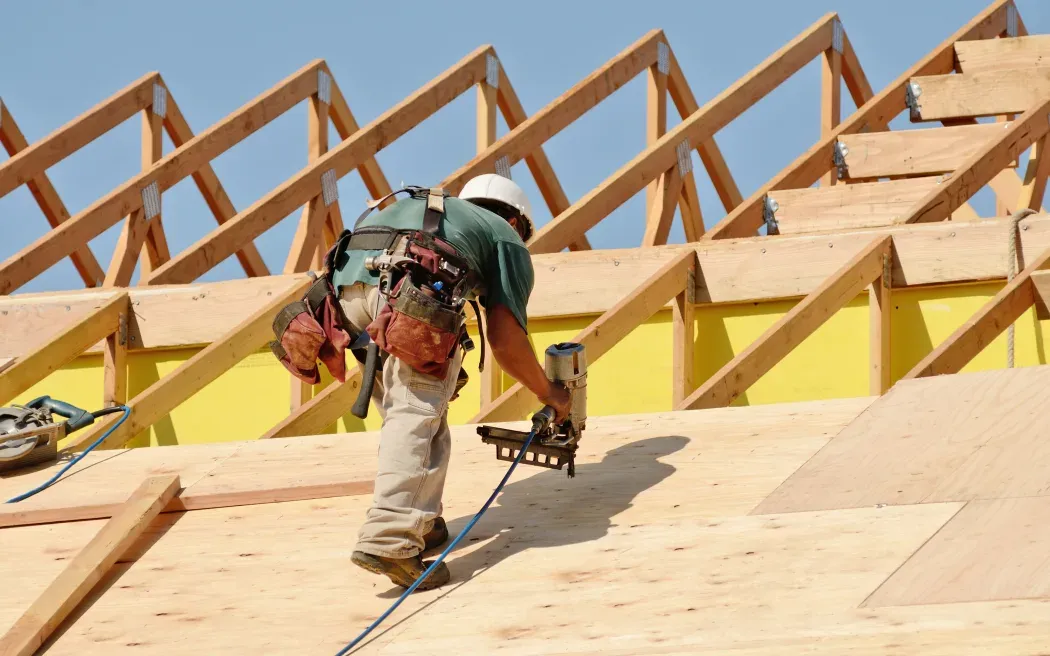Families Left in the Lurch as New Zealand Building Company Goes Bust
New Zealand’s construction industry has been hit hard by the recent collapse of a prominent building company, leaving families and businesses reeling from unpaid debts and unfinished projects. JT Construction, trading as Level Build New Plymouth, went into voluntary liquidation last week, owing creditors hundreds of thousands of dollars.
According to liquidators Insolvency Matters, the company’s sole director and shareholder, Jarom Tipene, owed unsecured creditors $400,000 and Inland Revenue $250,000. The financial implications are devastating for families who had entrusted Level Build with their building projects, expecting a finished product that never materialized.
The impact on customers
Cass Gray and her husband Darren contracted Level Build to do a $400,000 fixed-price extension and renovation of their Vogeltown property in New Plymouth. They thought they had bought $15,000 worth of appliances from Harvey Norman Commercial through Level Build, paid $4500 for variation on the contract in May, and were expecting a finished product.
However, when they discovered that the order was never placed, and the kitchen joinery was incomplete, they realized they had been left high and dry. “So, we called the Harvey Norman contact we had met with, and they [Level Build] never placed the order,” Cass Gray said. “So they’ve taken that $15,000 and spent it on I don’t know what as well as the kitchen joinery. So there’s probably close to $30,000 there.”
The couple is now facing a significant financial loss, with estimates suggesting they are around $50,000 out of pocket. They cannot live in their home due to the unfinished project, and are still living with their parents with a 14-month-old baby.
Mark Pollard and Jess Lawn had a contract with Level Build for the construction of a new home in Ōākura about 12 kilometres southwest of New Plymouth. They paid $120,000 establishment fee for design work, consent fees, and materials, but only saw around $25,000 worth of work completed before Level Build went into liquidation.
Pollard is angry at the situation, saying they had been told the roof would be on their new home by Christmas, but now that has not happened. “We’ve been burned. We’ve had no procurement of materials and they’ve pretty much walked away with that last $43,000 straight out of our hands,” he said.
The impact on small businesses
Hamish Scott is from Re-Lume Electrical, which was down $30,000 due to Level Build’s insolvency. He knew the director, Jarom Tipene, and had considered him a friend. “So, it’s pretty hard when you leave your friends like that and we’re down a fair bit in the pocket too,” Scott said.
Scott feels for the property owners who have been left with unfinished projects and unpaid debts. “Business is business, it is what it is, but taking people’s money a week or two weeks before going into liquidation, you must be able to see the shit is hitting the fan really.”
The company’s financial struggles
Liquidator Brent Hunt of Insolvency Matters published a first liquidator’s report, stating that JT Construction faced increasingly difficult trading conditions due to the current economic climate. This included rising material and labour costs and tighter market competition, significantly impacting margins.
“Operational challenges, such as financial impacts from undervalued pricing, further strained the business and despite efforts to streamline operations, the financial pressures became unsustainable,” the report said.
The director terminated staff and closed down operations as much as possible to minimize further losses. Staff were paid outstanding wages and holiday pay, according to the liquidator’s report.
Why This Matters
The collapse of Level Build highlights the need for stronger consumer protection in New Zealand’s building industry. With more companies struggling due to economic uncertainty, it is essential that consumers are aware of their rights and can seek redress when something goes wrong.
Regulators must also take a closer look at the industry’s financial practices, ensuring that companies like Level Build are not taking advantage of vulnerable customers. The government should consider introducing stricter regulations and fines for companies that engage in unfair or deceptive practices.
How to Implement Best Practices
In light of this incident, there are several steps that can be taken to prevent similar situations in the future:
* Strengthening consumer protection laws and regulations
* Increasing transparency and accountability in financial transactions
* Providing better support for small businesses and entrepreneurs
* Encouraging responsible lending practices and credit checks
* Implementing robust dispute resolution mechanisms
Conclusion
The collapse of Level Build serves as a wake-up call for the New Zealand building industry. It highlights the need for stronger consumer protection, greater transparency, and more accountability in financial transactions. By implementing best practices and regulations, we can prevent similar situations from happening in the future.
Recommendations
1. The government should consider introducing stricter regulations on the building industry, including increased fines for companies that engage in unfair or deceptive practices.
2. Regulators must take a closer look at the industry’s financial practices, ensuring that companies are not taking advantage of vulnerable customers.
3. The industry should prioritize transparency and accountability, providing consumers with clear information about their rights and obligations.
4. Small businesses and entrepreneurs need better support and resources to navigate the challenges of the building industry.
By working together, we can build a more resilient and sustainable construction industry that prioritizes consumer protection and fairness.

0 Comments